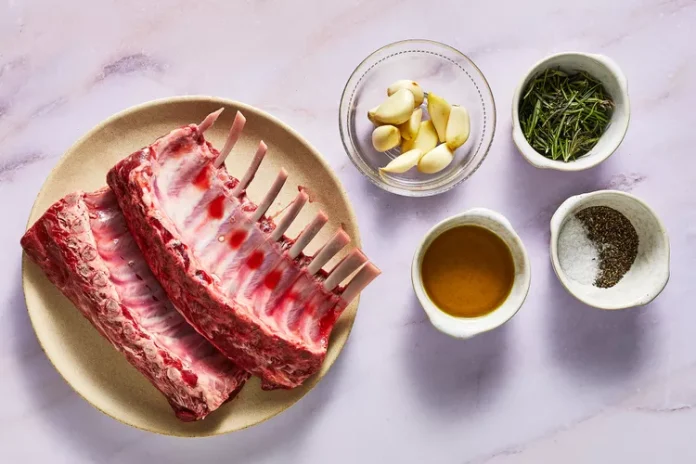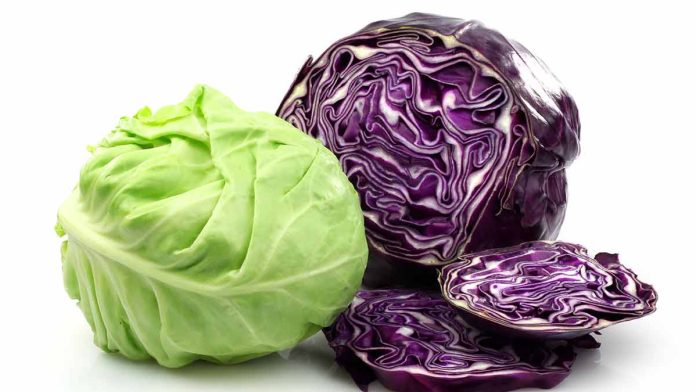When considering red meats, lamb emerges as a standout choice due to its nutrient density and culinary versatility. Beyond its delectable flavour, lamb packs a powerful punch of essential nutrients that contribute to overall health and well-being. This meat is rich in high-quality protein, crucial for muscle repair, immune function, and hormone production. Additionally, lamb provides significant amounts of essential vitamins and minerals such as vitamin B12, zinc, iron, and selenium.
Lamb’s nutritional profile extends further with its iron content, particularly heme iron, which is highly bioavailable and aids in oxygen transport throughout the body. This makes lamb an excellent choice for individuals looking to maintain healthy blood circulation and prevent iron-deficiency anaemia. Moreover, the presence of omega-3 fatty acids in grass-fed lamb enhances its cardiovascular benefits, potentially reducing inflammation and lowering the risk of heart disease. Incorporating lamb into a balanced diet not only diversifies meal options but also supports overall health with its array of nutrients essential for optimal bodily function.
What is Lamb?
Lamb refers to the meat of young sheep that are typically between 6 months to 1 year old. It is characterised by its tender texture and delicate flavour, making it a popular choice in various cuisines around the world. The age of the sheep contributes significantly to the quality and taste of lamb, with younger animals generally yielding more tender meat compared to older sheep;
Is Mutton Lamb?
Mutton refers to the meat of mature sheep, typically over a year old. It is known for its stronger flavour and tougher texture compared to lamb. The age difference affects the taste and texture of the meat, with mutton often prized for its robust flavour, used in dishes to enhance stews, curries, and roasts.
Nutritional Highlights of Lamb
80g serving of lamb provides approximately:
– 160 Calories
– 6 grams of Fat
– 25 grams of Protein
– Essential Vitamins: B12, Niacin, Riboflavin, B6
– Minerals: Zinc, Phosphorus, Selenium, Iron, Potassium, Copper, Magnesium
Health Benefits of Lamb
- Heart Health: Lamb, particularly grass-fed varieties, is rich in omega-3 fatty acids. These fats are beneficial for cardiovascular health, reducing inflammation, and potentially lowering the risk of heart disease. Grass-fed lamb also contains a higher ratio of omega-3 to omega-6 fats compared to conventionally raised meats.
- Iron: Lamb is an excellent source of heme iron, which is more easily absorbed by the body than non-heme iron found in plant sources. Adequate iron intake from lamb can help prevent iron deficiency and related conditions like anaemia.
- Vitamin B12: Lamb is a powerhouse of vitamin B12, crucial for nerve function, DNA synthesis, and red blood cell formation. A small serving of lamb can provide a significant portion of your daily B12 needs.
- Immune Support: Lamb is rich in zinc, essential for immune function, wound healing, and growth and development. Zinc found in lamb contributes to maintaining optimal immune health and overall well-being.
Why Choose Lamb?
Despite its nutritional benefits, lamb remains less popular in many diets compared to other meats. Its tender, buttery texture and rich flavour make it a delightful addition to any meal plan, offering a welcome change from more commonly consumed meats like beef and chicken. However, lamb enjoys widespread popularity and appreciation in various cuisines around the world. In Mediterranean and Middle Eastern cultures, lamb is a staple ingredient celebrated for its versatility and robust taste. It features prominently in traditional dishes such as Greek souvlaki, Moroccan tagine, and Turkish kebabs, showcasing its ability to enhance culinary experiences with its unique flavour profile.
Moreover, in countries like South Africa, Australia and New Zealand, lamb holds a cherished place in national cuisine and is enjoyed in various preparations, from roast lamb dinners to grilled lamb chops at barbecues. Its popularity extends beyond specific regions, as lamb’s nutritional value and savoury taste continue to win over food enthusiasts globally.
Incorporating Lamb into Your Diet
Whether you’re barbecuing grilling lamb chops, roasting a leg of lamb, or trying a new recipe, Explore new flavours and enhance your culinary repertoire with this nutrient-rich and delicious meat.
Don’t miss out on the health benefits and savoury taste of lamb—expand your palate and enrich your diet with this exceptional red meat choice.
Fun Fact: The act of counting sheep as a sleep aid can be traced back to ancient shepherding practices. Shepherds would often count their sheep as a way to keep track of them and ensure none went missing during the night. This practice eventually made its way into popular culture and literature.



















